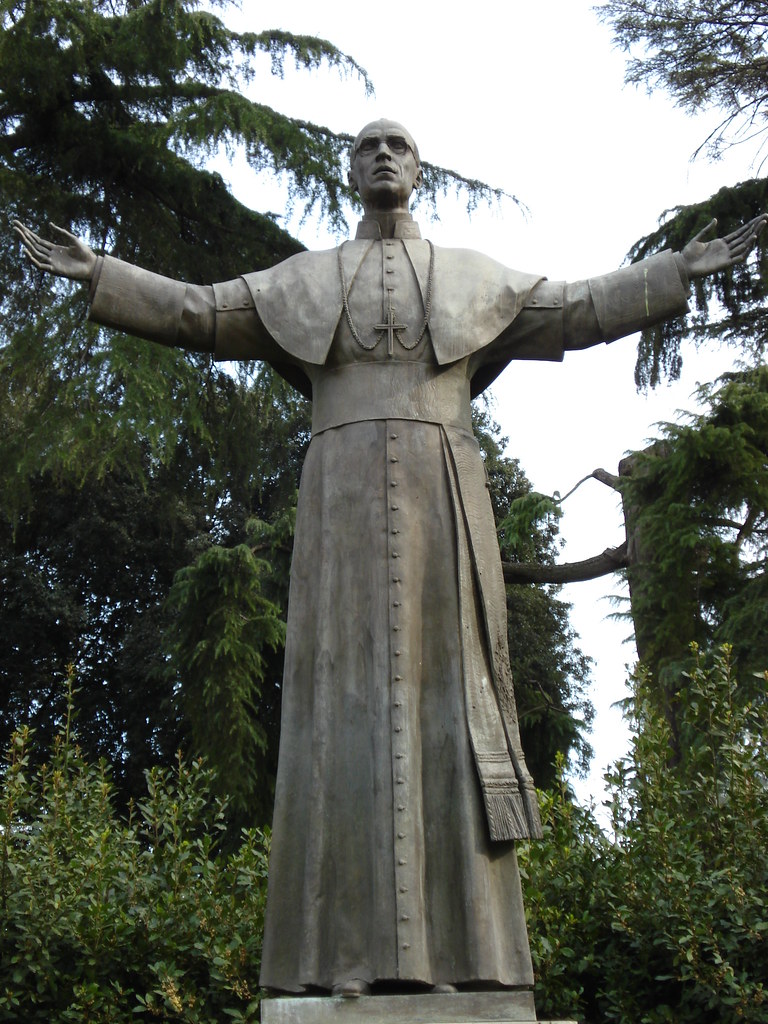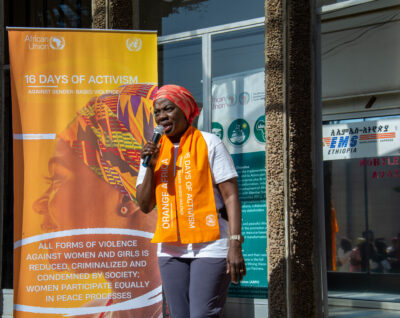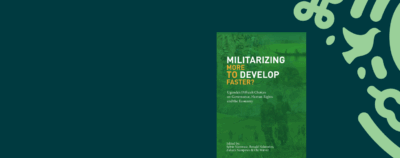
Christmas Day, 1942. The outcome of World War II was undecided, but the pope had something new to say.
A month before, the tide at Stalingrad had turned against the Germans. Just two days before, General Erich von Manstein had abandoned his efforts to relieve the Wehrmacht’s doomed Sixth Army. But there was no telling that the extraordinary German strength in the war so far would now ebb quickly.
The Americans had formally entered the war a year before, but the Allies would not reach mainland Italy for another nine months, or make it to Rome for a year and a half. The pope—Eugenio Pacelli, or Pius XII—was in dire straits. His relationship with Benito Mussolini had long since soured, and he was a prisoner in his own tiny Roman domain.
As for the Jews, the worst victims of the conflict, millions were dead already; the victims at Babi Yar had lain in their ravine for more than a year; Treblinka, the most infernal death camp, had come on line six months before and already completed much of its grim work.
Officially, of course, the Catholic Church and its leader were neutral, and didn’t play politics. Many of his flock were to be found on both sides of the war.
To the extent people have revisited his Christmas message, it has been to argue about whether Pius could or should have said more about the Holocaust than he did. But the real interest in the message is what the pope was for, not what he was against. In this fight, Christianity stood for values, and in the perspective of world history, Pius XII had some new ones.
* * *
The very first of the five peace points that Pius XII offered that day ran as follows: “1. Dignity of the Human Person. He who would have the Star of Peace shine out and stand over society should cooperate, for his part, in giving back to the human person the dignity given to it by God from the very beginning…He should uphold respect for and the practical realization of…fundamental personal rights…The cure of this situation becomes feasible when we awaken again the consciousness of a juridical order resting on the supreme dominion of God, and safeguarded from all human whims; a consciousness of an order which stretches forth its arm, in protection or punishment, over the unforgettable rights of man and protects them against the attacks of every human power” (emphases added).
We now take in such language, and especially the notion that human dignity provides the foundation for universal human rights, with mother’s milk. Yet it was all rather new at the time. The Catholic Church had previously rejected the hitherto secular and liberal language of human rights, and it was around the same time that the ecumenical formations of transatlantic Protestant elites proclaimed human rights the key to future world order. The communion between human rights and Christianity was therefore a novel and fateful departure in the history of political discourse.
Undoubtedly, the pope’s first peace point was the supreme, influential, and most publicly prominent invocation of human dignity during World War II proper and likely in the whole history of political discourse to that date. Alongside novel Protestant discourse, it was also at or near the top of the list of prominent wartime invocations of the basic idea of universal human rights, especially understood as a principle—as Pius would very clearly two years later in his 1944 Christmas message—of world and not merely state order.
* * *
Now, claims that human rights are fundamentally Christian are a dime a dozen, especially among certain Christians who, and in view of the prestige of human rights, want to take credit for what have become our core values. One such claim was offered by the late Pope John Paul II who noted in 2003 that it was from “the biblical conception of man [that] Europe drew the best of its humanistic culture, and, not least, advanced the dignity of the person as the subject of inalienable rights.”
Indeed, it is now widespread in the scholarship of our contemporaries, like John Witte, Jr. (who emphasizes the Reformation) and Nicholas Wolsterstorff (who emphasizes Jesus), to attribute rather old Christian lineages to contemporary human rights.
In the writings under consideration in this forum, I have been proposing that the scrutiny needs to focus much less on such ancient history than on contingent and timebound circumstance—and when it comes to the novel communion between Christianity and human rights, on the 1940s and shortly before.
The recent Mellon lectures I gave at the University of Pennsylvania, forthcoming from Penn Press as the short book Christian Human Rights, are an argument for this proposition. And far from teaching us simply about the Christian sector of affiliation with human rights in the 1940s, my story about this crystallizing moment tells us about the fortunes of the concept as a whole, because it turns out to be quite difficult to find non-Christians who enthused about human rights, and more especially their basis in human dignity, in the age. The history of Christian human rights in the 1940s is a large part of the history of human rights discourse generally.
Looking back at the Reformation, or even its founder himself, is not entirely distracting, to be sure. I have never claimed that the history of human rights is one of wholly discontinuous novelty, whether in the 1940s or after. Novelty always proceeds not ex nihilo but from a fragmentary history that is coaxed into more robust form.
This point about novelty also applies to the novelty historians now call “the invention of tradition,” which is a large feature of Christian human rights, since they were forged in part by claiming they had always been core principles. Even partial continuity across time often proceeds through rediscovery and reactivation of lost possibilities and underemphasized realities. Many of those who want the ideological association of Christianity and human rights to be deep and lasting are participants in—rather than analysts of—such inventions, for they ignore that Christianity had often stood for values inimical to those we now associate with human rights. It took a set of wrenching experiences for Christianity to come to seem friendly to them.
* * *
The truth is that Europe drew so much from Christianity in the long term—not excluding, if Gil Anidjar is right, its capitalism, imperialism, and racism. It would be fictitious to retrospectively edit the long and tumultuous history of Europe, as if everything we liked about the outcomes were due to its hegemonic religion, while the rest was an unfortunate accident or somebody else’s fault. And to the extent this is true, the challenge of isolating the crucial period for a strong ideological link of Christianity with human rights changes. We are going to have to look not so much at Jesus (or even at the Reformation), but at novel mid-twentieth century interpretations of what his teaching demands, to understand how the huge set of possibilities the Christian legacy bequeathed was winnowed down.
Without Christianity, our commitment to the moral equality of human beings is unlikely to have come about, but by itself this had no bearing on most forms of political equality—whether between Christians and Jews, whites and blacks, civilized and savage, and most especially men and women. That had been true for millennia, and it was mostly still true on Christmas Day, 1942.
If the winnowing of Christian values was not complete (and never is, since traditions are never set), it was, above all, because the war was undecided. Pius’s peace points are fascinating because they introduce human rights and dignity before the war’s outcome was clear.
It wasn’t just that over its long trajectory, Christianity had stood for the star of peace, but also the dogs of war, when they were thought to pursue justice; that its members had powered abolitionism in the nineteenth century, but slavery’s defenders relied upon Christianity’s long tolerance and support for the institution; that Christians had served empires, from Rome to modern global ones; and that patriarchy in so many forms was perhaps their fundamental commitment. Most relevant to our purposes, Christians and Christian thought were deeply entangled in the collapse of liberal democracy on the European continent between the wars, and Catholicism in particular had celebrated victories for its social teachings in the fall of liberal democracy in authoritarian Austria, Spain, and Portugal in the 1930s, and Vichy France in the war, even as a Catholic priest was the titular head of Nazi Germany’s most subservient client state, Slovakia. And only a few Christians denounced fascism in these years and normally then to protect Christian interests; from the pinnacle of the churches to the rank and file, more acquiesced to it, or even fervently served it, including in Nazi Germany, which some were calling “the holy reich.”
And yet it is also Christians who did much and perhaps most to welcome and define the idea of human rights and some of its core notions—like the importance of human dignity, which nobody else was yet making central, in the 1940s. How was this possible? Perhaps it was because, to a rather disturbing extent, human rights and especially human dignity had no necessary correlation with liberal democracy. Certainly not in 1942, when Christian figures like the pope were not yet (to the extent they ever became) friends of that regime.
* * *
In my recent work on these matters, my general thesis has been that through this lost and misremembered transwar era, it is best to see human rights as a project of the Christian right for the most part, not the secular left.
They were about a break with the revolutionary tradition and its human rights, or better put, a successful capture of that language by forces reformulating their conservatism. If this is true, the central question about Christian human rights in the 1940s is whether the Christian and conservative encounter with human rights—the embrace of liberal principle by forces once inimical to it—is plausibly seen as a victory for liberalism. Conservatism, to be sure, changed through affiliation with historically liberal norms and a historically liberal language. Fascist and authoritarian solutions were taken off the table—with the very large exception of the Iberian Peninsula. But in viewing this process it behooves us to ask whether Christianity and conservatism were able to change liberalism more than they were changed by it. After all, we are dealing with a new era in liberalism—specifically, the ideological origins of Cold War liberalism in the face of the specter of “totalitarianism.”1James Chappel has done the best work on this ideological transformation.
Fatefully, then, the story of the origins of Christian human rights needs most of all to be about how the language of rights was extricated from the legacy of the French Revolution, whose secularist mantle the Soviets were now widely seen to have assumed. And thanks to their championship within a new political formation—constitutionally organized religious democracy governed by Christian parties—a compromise between Christianity and democracy became not only palatable, but a precious resource for the future of religious values.
In the nineteenth century, what Pius XII in 1942 called the “unforgettable rights of man” were things that his predecessors had tried very hard to forget, because their success or failure was very closely correlated with the success or failure of secular liberalism in the wake of the French Revolution (though its own Declaration of the Rights of Man and Citizen had celebrated rights as “sacred”). Thanks to events in the 1940s, this was no longer true. Indeed, Christians redefined and went a long way towards capturing them. The reason they did so was because of their confidence—a rather impressive epistemic confidence that many of us might like to have about our values—that they knew the moral truth and that it ought to be imposed everywhere. Christian human rights were part and parcel of a reformulation of conservatism in the name of a vision of moral constraint, not human liberation or individual liberation. Jesus’s truth had been intended to set men free, but not for the sake of their creative autonomy or the satisfaction of their preferences. This liberation was for the sake of constraint: so that men (and women) could conform to God’s will and moral order.
“Human rights” now figured because, in the crucible of reaction before and during World War II when they flirted with far-right states (or built their own), Christians learned that the cultivation of moral constraint depended in part on keeping the spiritual communities that offer ethical life a home partly free from the state. It would not do for churches to fully capture Caesar’s power when spiritual life was beyond his ken. It was also for this reason that, in the 1940s, human rights were a communitarian project, and not only or so much a liberal one.
* * *
If this is true, then there are four conventional opinions about human rights in the 1940s that will have to be abandoned or corrected. First, there is the claim that institutions like United Nations, which allowed for the birth of the Universal Declaration of Human Rights (1948), deserve most scrutiny. With that understandable emphasis, however, historians have routinely ignored broader culture and ideology, in which Christianity loomed largest in early human rights discourse.
Second, historians have followed the general public in treating human rights as a post-Holocaust breakthrough. Yet few who said they cared about human rights and dignity in the 1940s said so because of the Jewish fate, and the pope is a good example of this broader truth. Christmas 1942 was the darkest moment of what historian Arno Mayer once called “Christian Europe’s darkest night,” but the initial flickering of Christian human rights was not meant to illuminate the plight of the Jewish people and did not occur for their sake. The same was true when rights and dignity became central to the political ideology of early postwar Western Europe under Christian Democratic rule.
Third, historians treat human rights as the fruit of a multicultural communion. But this notion fails to do justice to the fact that the sole abstentions to the Universal Declaration of Human Rights in the United Nations reflected the sway of organized Christianity’s greatest enemies, old and new: Islam and communism. Above all, it fails to reckon with the fact that Western Europe became the initial homeland of human rights (and especially human dignity, since West European constitutions were almost the sole ones to cite that principle for a long time). In the 1940s Western Europe initiated its long age of the political hegemony of the Christian Democratic movement: no doubt the truly key fact that a sober return to the history of human rights in the era must stress.
Fourth, scholars have tended to believe that human rights arose on the ruins of prior mistakes and in a total break with political experiments like fascism undertaken by Europeans shortly before. In contrast, I contend that we can only come to grips with Christian human rights by recognizing their short-term origins in and through the 1930s. Philip Nord has recently called for the study of so-called “transwar” continuities, and it is clear that the story of Christian human rights demands such an approach.
* * *
This history matters because it reflects a fairer sense of the weight and legacy of what can legitimately be called Christianity’s conservative or even illiberal past, parts of which contemporary reactionaries like Brad Gregory and John Milbank are not entirely wrong to recall in their refusals to domesticate the history of Christianity for present-day purposes. If they are often on historically firm ground, however, their antimodern political projects certainly do not follow. Like Camille Robcis, who is doing such interesting work in assessing the legacy of Christianity even in current European political debates, I personally think we would do well to recover the history of Christian human rights so that we can transcend its least persuasive aspects.
The commentators in this series of posts, whom I thank in advance, have read this introduction as well as my central argument about all these matters which appeared as “Personalism, Community, and the Origins of Human Rights.” It was actually the first contribution to the new human rights history I ever wrote, for while my larger project in The Last Utopia: Human Rights in History was to postpone the full-fledged triumph of human rights to our own era, I also wanted to show how distinctively Christian they were at the time of their 1940s annunciation. I am happy to say that my original and superficial exploration of this topic has been built upon and superseded in most respects by a series of extraordinary scholars. In addition to James Chappel, these include Giuliana Chamedes, Marco Duranti, Udi Greenberg, Piotr Kosicki, Linde Lindqvist, Justin Reynolds, and Anna Su. Their publishing contributions are already taking the debate around Christian politics and the reformulation of conservatism between the 1930s and 1940s (of which Christian human rights proper were a minor feature, primarily of interest today) in fascinating new directions.
The essay on so-called “personalism” under scrutiny here deals heavily with Catholic publicist Jacques Maritain, certainly the most prominent philosophical defender of universal human rights in the 1940s, and a pivotal player in the political transformation of Christianity across the transwar divide. The other chapters in Christian Human Rights, when it appears, will start with the history of human dignity in constitutions: the first of this sort was Ireland’s 1937 document, not coincidentally perhaps also the first Christian Democratic constitution in history; then there was Marshal Philippe Pétain’s abortive 1944 French constitution; and only later the postwar West European constitutions. The book looks at Protestant versions of Christian human rights, notably in the work of Gerhard Ritter, the dean of German historians of the period. If Maritain was the leading theoretician of human rights then, Ritter was their preeminent historian. Finally, the book concludes with an account that offers some inking of the legacy of Christian human rights today, in European Court of Human Rights cases about the Muslim headscarf and the meaning of religious freedom.
In the 1940s, as much as in and through some of their legacies today, Christian human rights have not so much been about the inclusion of the other, but about policing the borders and boundaries at which threatening enemies loom. Human rights have a complex history, and it is—like all inheritances—worth tough criticism, not subservient adulation.














I’m going to read this book closely. Based on TIF posts, it appears Moyn is conducting yet another round in his project to scrub radical politics of its religious traces. Moyn knows his audience’s myths and desires, and he is giving them what they desire. It works like this: arbitrarily posit a historical break, and perform tendentious analysis governed by conventional friend/enemy appellations that constitute the ‘radical’ social imaginary. We must purify the HR legacies of “conservatism” – which for Moyn means: Christianity as such. Such an exercise in both doctrinal and historical purification – though an understandable psychological compulsion for some – of course does not impugn the wide and circuitous course of the historical genesis of the idea, nor erase the multitude of traditions and signatures it bears, for good and ill. Quite like the apologetics he performs in the headscarf piece: instead of identifying the central problem a very specific Christian tradition shares with the laïcité – namely, statist arbitrarity, Moyn rather changes the subject by shifting ‘guilt.’ I wish he would direct his scholarly talent to historical research useful to binding the left together into an effective political force, instead of compulsively repeating scapegoating rituals intended to keep us pure (and powerless). “Traditions are never set” – except for “Christian” ones.